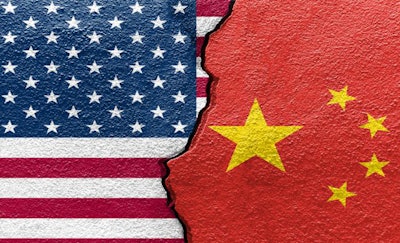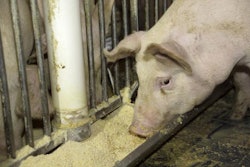
With China’s pork supply greatly reduced as a result of the African swine fever (ASF) outbreak, meat and poultry prices are already starting to move as a result of the outbreak. Industry experts have predicted that once the country’s inventories in cold storage are depleted, prices should rise significantly. Professionals have suggested that poultry demand would increase quickly because of its efficiency and lack of religious limitations.
However, pork producers around the world are wondering who China will turn to for supply and how politics will continue to play a role.
A look from the U.S.
When considering who will be the biggest competition for U.S. producers, Joseph Kerns, president of Kerns and Associates said he thought, “the obvious one is Europeans.” He explained that they have a physical and logistical advantage due to their proximity. “That (European trade) has also been consistent with China’s behavior, so that’s not getting too far out on a limb predicting that they will be first,” he said.
In early May, Argentinians opened their doors to trade. “That’s not that big of a deal,” Kerns said. Argentina processes in a month approximately what the United States does in a day. “That’s talking total production, not what is available to go to the export market,” he added.
Brazilians will compete, but Kerns explained that the biggest competition for the U.S. in seizing the opportunity will come from Canada. “They have approximately one-fifth of the number of sows as the U.S. We (the U.S.) export about 25 percent or our pork product. They export about 70 percent of theirs.They are very, very export-oriented and have done a fantastic job of tailoring their offerings to whatever market brings them value,” he said.
The U.S. agreed on May 17 to lift tariffs on steel and aluminum from Canada and Mexico, this move has provided physical evidence that Canada is spiking shipments to China and U.S. shipments to Canada (fill in) have also spiked, Kerns explained.
How does export competition impact the U.S.?
“It doesn’t matter who ships the product; it is a world market. Suddenly if we divert some flows into China, we’re (the U.S) going to be picking up the offal. As a result, U.S. shipments to South Korea or Mexico may go higher,” Kerns said. “I cannot overemphasize enough that it is not individual winners and losers, the tide is just changing. If you are a ship in the harbor you are going to be impacted,” he said.
If one considers just the conservative losses that the Chinese have reported and let's say they need to replace that, Kerns said it would saturate all world trade. “All world trade is approximately 9 million metric tons of pork and the Chinese have already lost what they have accounted for to be more than that,” he said. Private sources have said they think the loss is double what Chinese officials have reported.
“Their loss in production more than eclipses all of the pork that was traded across the world last year,” he said. If China just wants to hold serve in 2019, every other country would have to stop all other pork exports and ship solely to China. “That is not practical,” he said.
View our continuing coverage of the African swine fever outbreak.
















